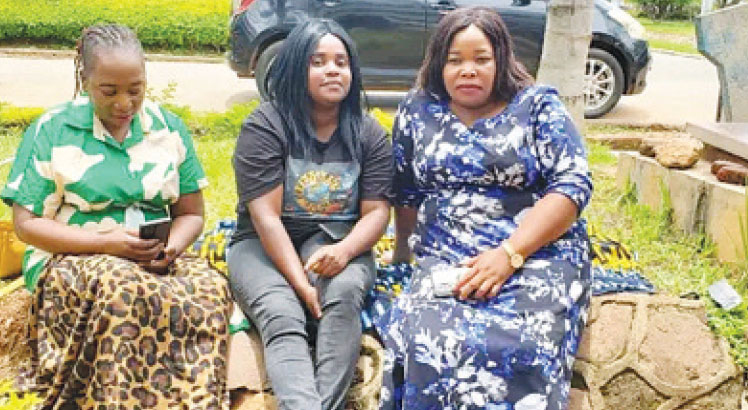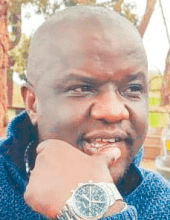Winding road on death benefits claims
People claiming death benefits from the government should brace for more tough times as the Deceased Estates Act is rocked with various loopholes.
However, there are suggestions to improve efficiency and ensure that the process does not consume too much time.
Ironically, even Capital Hill is decrying the winding bureaucratic path as files keep jumping from the Administrator General’s office to the Registrar General then to the High Court of Malawi under Probate Division before the Accountant General processes the payment.
The matter has been ignited by Hendrina Kamenya, a 23-year-old woman from Mwanza, who last week took it upon herself to hold a vigil at the Accountant General’s office in Lilongwe to force payment of death benefits for her father after three years of fruitless efforts.

during the vigil last week
On why it takes long to process payments, Minister of Justice Titus Mvalo admitted that the process is generally too long.
He said it all begins from death certification, reporting to the Administrator General and taking the steps.
Said Mvalo: “That office prepares several documents which are filed with the Registrar General to establish estate duty payer bond.
“These are documents like estate duty affidavit form, oath of administrator form. They specify the property left by the deceased and funeral expenses to come to a net value of an estate.”
Together with an estate duty, an application is then made to the High Court to issue a Letter of Administration, a document under which someone is appointed to be the administrator of the estate, said the minister.
He said: “Without those documents, the Administrator General has no power to do anything. It is a very long process and sometimes delays happen at the court, that’s where sometimes things get stuck. If it wasn’t for that long procedure, things would have been done much quicker.
“At the Administrator General’s office, a lot of work has been done, but they are waiting for the High Court to issue letters of administration. The High Court now has the Probate Division. This will help because judges are assigned just to do that work.”
But labour law expert Mauya Msuku differed with Mvalo, saying, like in the case of Kamenya, the delay was by people responsible for payments.
He said: “These cases do not take time in court because they are non-contentious; so it is not fair to blame courts. I agree that the process is long, but on delayed payments, the main delay is at the pay master who decides not just to pay.
“The Deceased Estates law generally serves the entire community, and it is mind boggling that the jurisdiction for such a law is with the High Court. Let us decentralise it to the magistrate court which is accessible easily. If my uncle dies at Marka in Nsanje, do you expect him to travel to Blantyre?”
Msuku said the long process has, in some cases, seen people in town inheriting property that does not belong to them.
He said considering the volume of work at the Administrator General’s office, it would be better to decentralise such matters to magistrate courts where administrators can be appointed and easily follow the estates.
Thyolo Thava legislator Mary Navicha, who joined Kamenya’s family in the push for benefits at Capital Hill, said the Accountant General’s office has just one person managing everything.
“There is a serious back-load of cases, many of them are processed, which delays the actual payment. It seems whenever there is a shortfall they use that money to cover up,” she said.
Officials from the Accountant and Administrator Generals’ offices were yet to respond to our questions by 5pm yesterday, Malawi Supreme Court of Appeal and High Court of Malawi registrar Kondwani Banda asked to be called later.
Meanwhile, the Human Rights Defenders Coalition (HRDC) has written Secretary to the President and Cabinet (SPC) Colleen Zamba to institute an audit that will thoroughly examine the Accountant General’s procedures and systems concerning pension disbursements and the settlement of deceased estates.
HRDC national coordinator Kelvin Chirwa said the audit will ensure that such delays and difficulties are not recurring for other beneficiaries.





